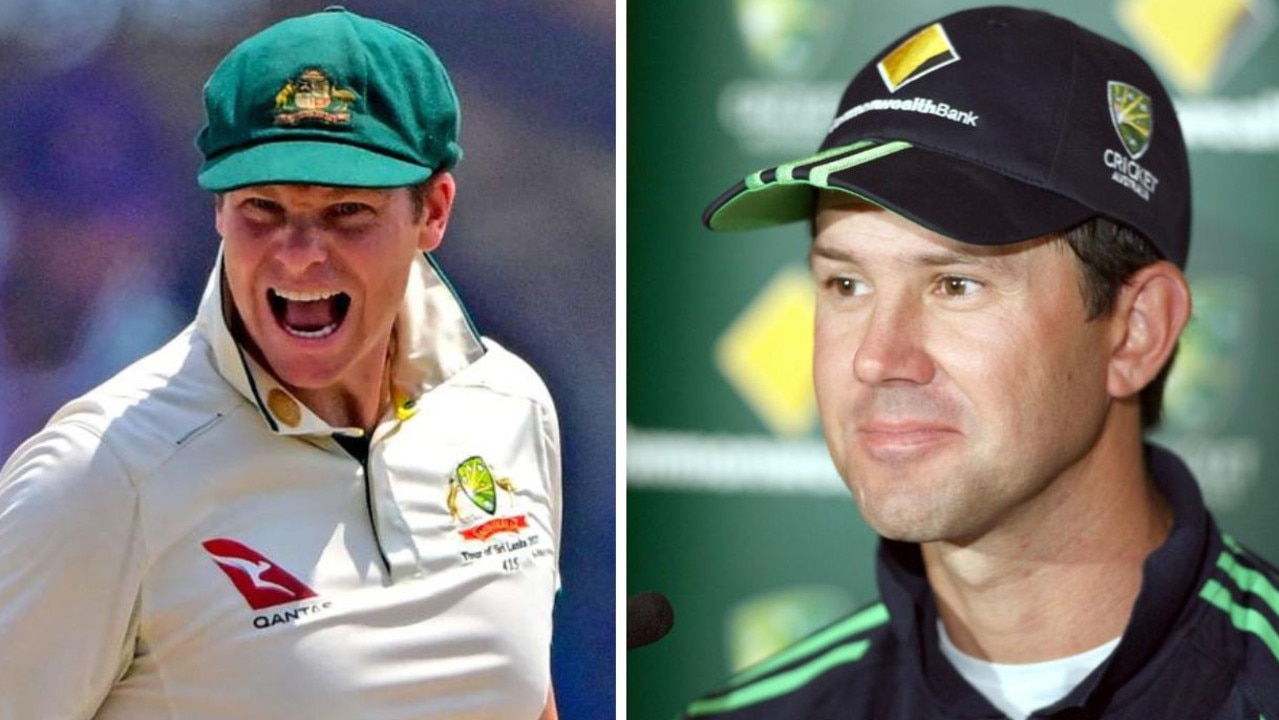Vale Trevor Grant, one of Australia’s finest sportswriters of his time
TRIBUTES have flowed after the death of Trevor Grant, who is remembered as one of the Australia’s finest sportswriters of his time.
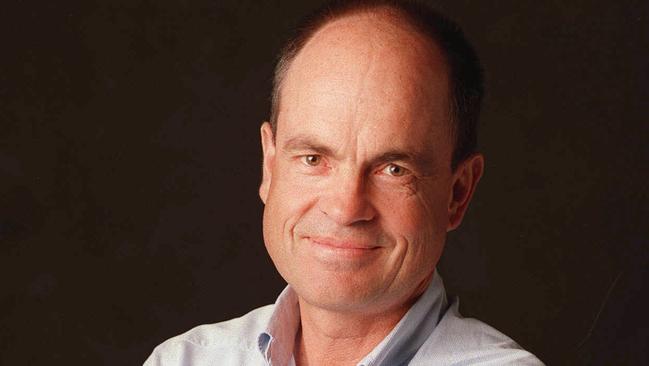
Sport
Don't miss out on the headlines from Sport. Followed categories will be added to My News.
TREVOR Grant, who has died of the cancer mesothelioma aged 65, was short in stature and huge in principles. He was also one of Australia’s finest sportswriters of his time.
He loved his children Matthew and Caroline, and his new grandchild, the written and spoken word, a noble cause, 18 holes of golf and standing up to bullies.
Many AFL coaches cringed at the sight of Grant at an after-match press conference, uncomfortable in the knowledge the “fifth quarter” was going to be as thorough as any examination he and his players had just been put through.
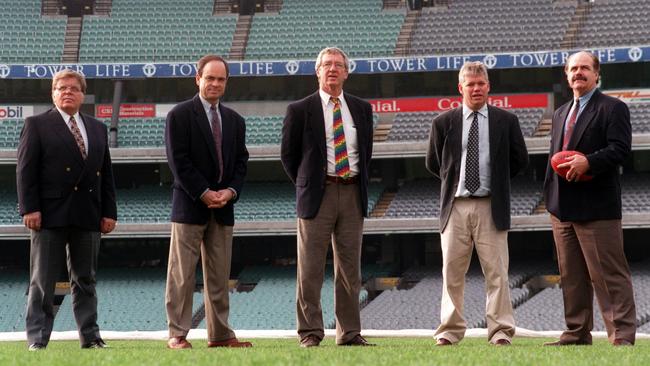
His time in Melbourne newspapers ran from 1968-2008 and combined work of the highest quality with publications such as the Herald Sun, Sunday Herald Sun, Sunday Herald, Sunday Press, The Age, Sporting Globe and Newsday.
To Trevor, every story he wrote was precious because the words mattered. Yet he could also meet demanding deadlines without letting his high standards slip.
I urge aspiring journalists to find and read a 1989 story (published in a book titled The Longest Game) he wrote for the Sunday Herald about a cricketer named John Watkins, an uncomplicated soul from the wharves of Newcastle who had been embarrassed during six erratic overs of leg spin against Pakistan at the SCG on January 7, 1973.
RIP to a great mate of many years and a truly outstanding sportswriter Trevor Grant who succumbed yesterday after a long and brave battle.
— ron reed (@reedrw) March 6, 2017
So saddened to hear of the death of one of our greatest sportswriters Trevor Grant. Fearless pursuer of the truth. Wordsmith. Mentor to all.
— Glenn McFarlane (@MaccaHeraldSun) March 6, 2017
RIP Trevor Grant one of the best sports journos I ever had the pleasure to work with. Gone too soon. #shortone
— Martin Blake (@martinj_blake) March 6, 2017
Very sad to hear the passing of Trevor Grant, an MCG Media Hall of Fame inductee and long-time sportswriter at The Age and Herald Sun. https://t.co/sQHnv3iRoL
— Melb Cricket Ground (@MCG) March 6, 2017
Trevor Grant. As the nickname suggested, short in stature. A giant of the sports industry. Thenwent on to fearlessly pursue governments
— Jon Ralph (@RalphyHeraldSun) March 6, 2017
Trevor Grant has gone to annoy and harass and question the ultimate coach. One hell of a sports writer with ticker and stature. #RIP
— Mark Robinson (@Robbo_heraldsun) March 6, 2017
The words sang as Trevor captured Watkins in a compassionate yet revealing way. The structure of the story was perfect, each sentence carrying that extra detail that sets the greats apart from the foot soldiers.
Away from the keyboard, he was a private person.
Quick to smile and a lover of stories, he had his favourite yarns. How many times did we hear of the time a naked Melbourne coach Carl Ditterich chased him down a Waverley Park hallway, furious at Trevor’s questions at an after-match press conference?
Or the last time he crossed paths with his old sparring partner Mick Malthouse, the then Collingwood coach telling Trevor: “I hope I never see you again.” Far from being in anyway discomforted, Trevor wore it as a badge of honour, delighted he had got under Malthouse’s skin to such an extent.
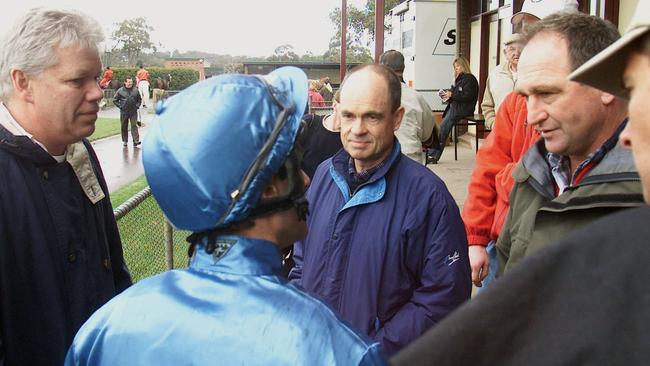
“You see them in and you see them out,” he would quip after yet another coach had been sacked, more than likely one with whom he’d battled at the after-match press conference.
He used the same words when speaking of the many editors for whom he worked, respecting most although wary of a couple who had what he often described as “that lethal mix of ignorance and arrogance”.
We worked together for 20 years, beginning at the Sunday Herald in August 1989. One of our early editors, very much tarred with the Sydney brush, once arrived back in the office after a meeting with his boss, Rupert Murdoch.
The editor summoned Trevor and demanded a lengthy feature on “the legendary Ken Miller”, because Murdoch had requested it.
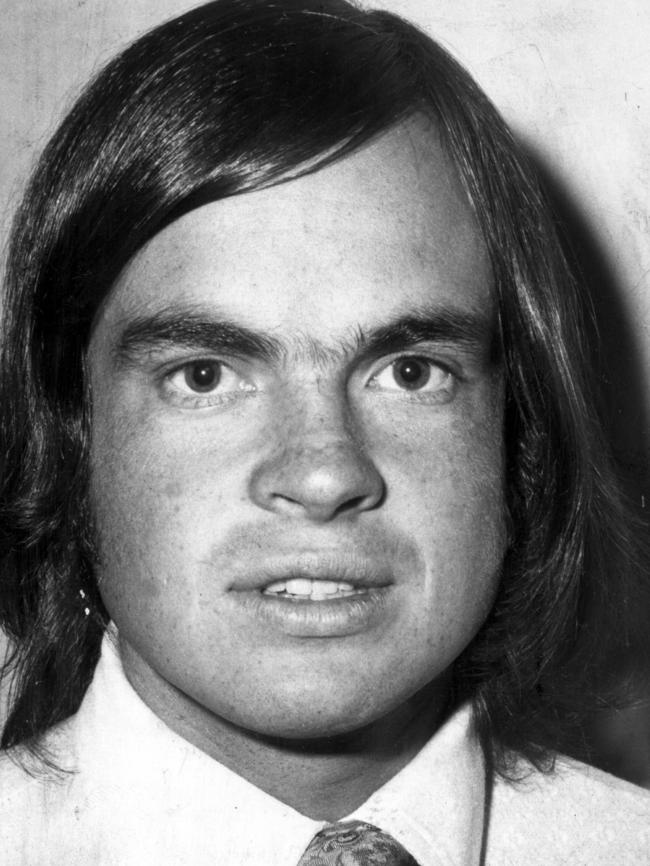
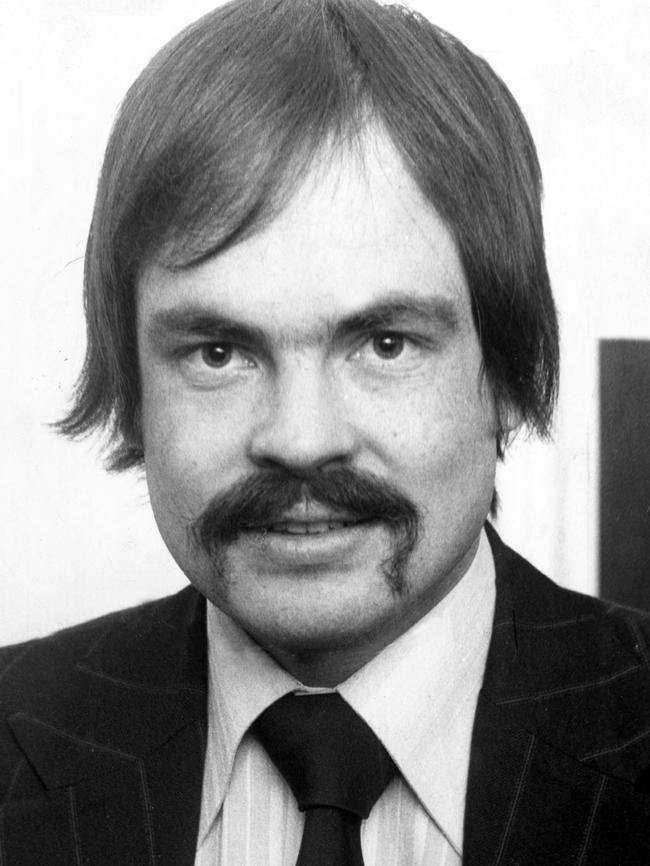
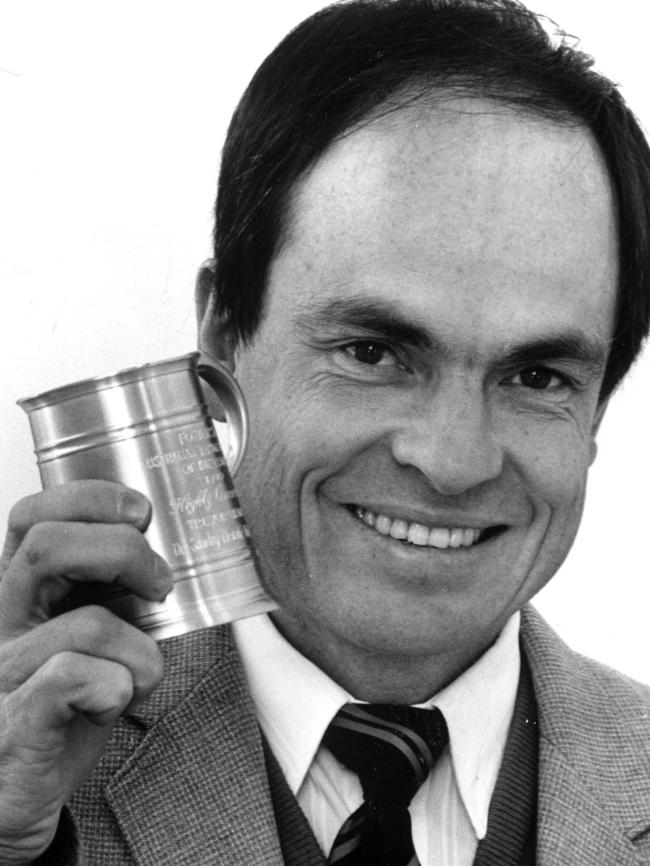
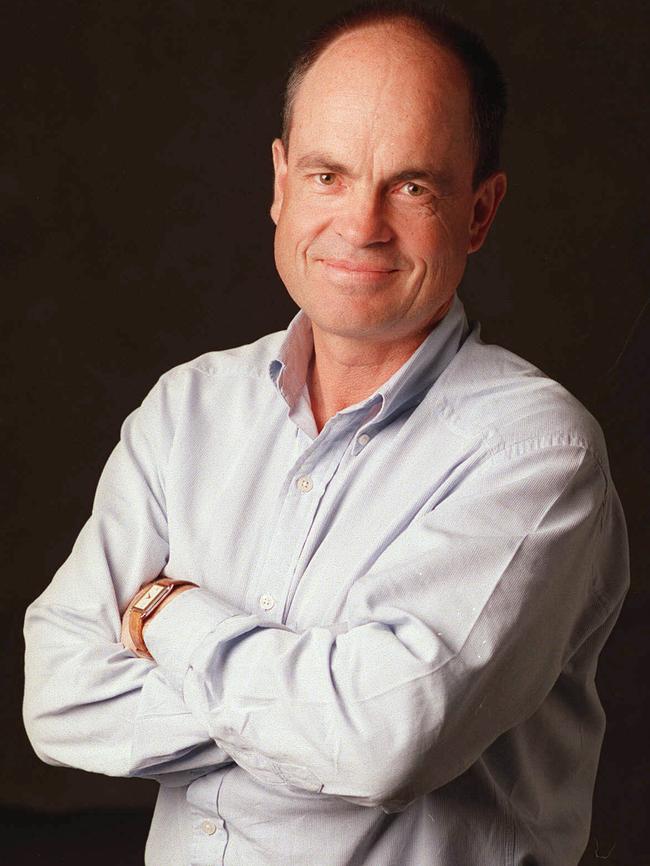
Trevor smiled and later that week produced 1500 flowing words on “Ken Miller”, or Keith Miller as most of us knew him.
As a sportsman, golf was his passion, a long-time single-figure handicap testament to his skill. As much as he admired the long irons and driving of Greg Norman, he also regarded him as flawed and took any opportunity to write as much.
He despised the media sycophants who attached themselves to Norman’s coat-tails.
He also despised an Australian spin bowler of the 1970s, who on a tour of England had referred to Trevor’s then girlfriend as a “effing tart’’. Trevor told the cricketer to apologise, a request that was denied in an even ruder manner. Thirty years later he wrote a story about the incident, much to the chagrin of the bowler.
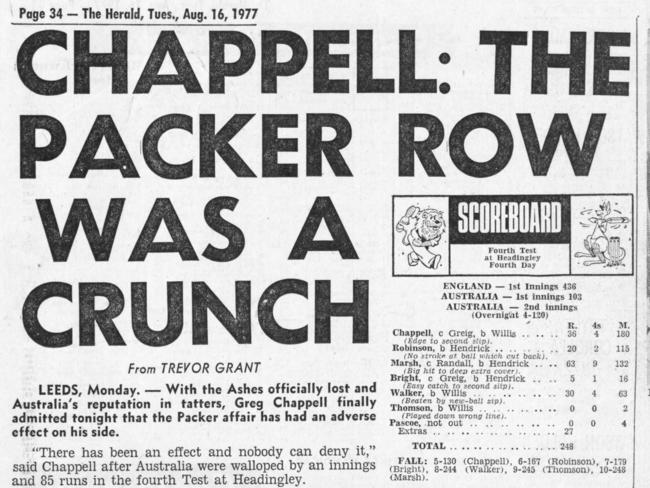
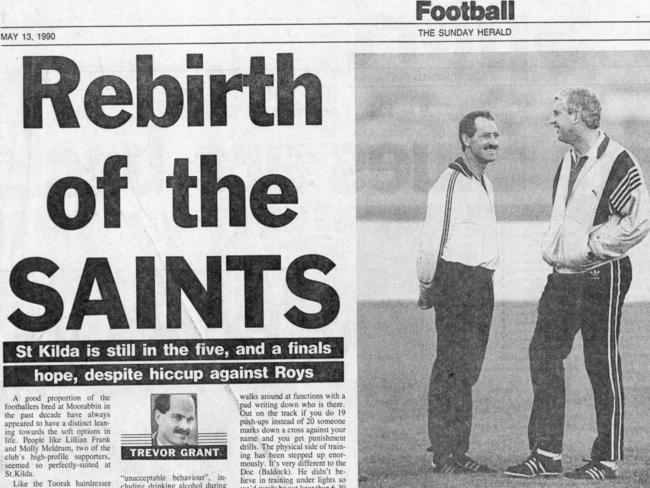
Manners were very important to him and he hated rudeness or egocentric behaviour. Yes, have a long lunch, which he loved to do three or four times a year, but never be rude. You knew when the singing syrup was having its effect once Trevor started reciting Hamlet or Macbeth, the works of William Shakespeare being among his favourites.
Another was Sir Thomas More, from Robert Bolt’s A Man For All Seasons, who when about to face the executioner, calmly stated: “Death comes to us all. Even for kings he comes.”
I can see Trevor sitting on a stool at the Phoenix Hotel in Flinders St, rising to his feet to quote the Bolt.
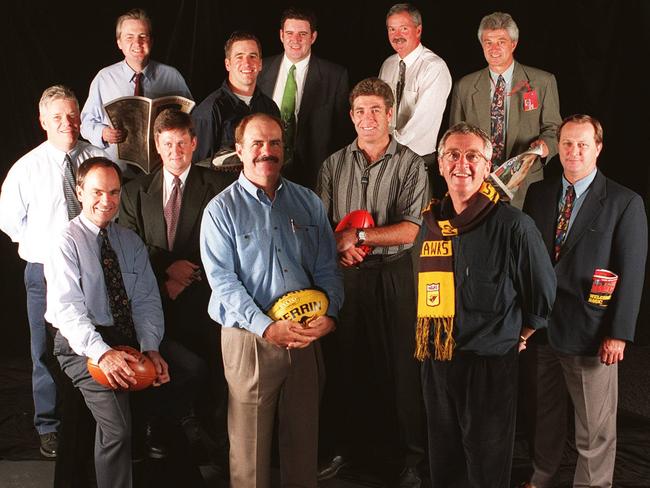
As it turned out, the pair shared a similar bravery when it came to their impending demise. Trevor, who was diagnosed with mesothelioma in 2015, sent a text in reply to a hopeful catch-up later this week with Mike Sheahan and me.
“Would love to have a chin wag with you and Mickey later this week. I always had to face the moment when the oncologist said nothing more can be done, and while I don’t know when, I’m ready for it,” Trevor wrote.
Trevor displayed a remarkable bravery in dealing with the cruel ticket he had been handed, speaking openly of his life, his love for his children, his favourite sporting moments and his sadness that in his eyes his beloved craft of journalism was being devalued.

